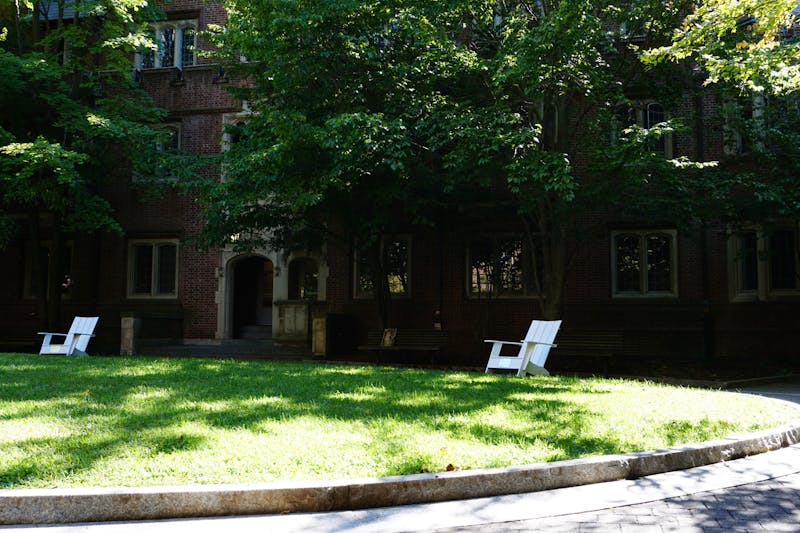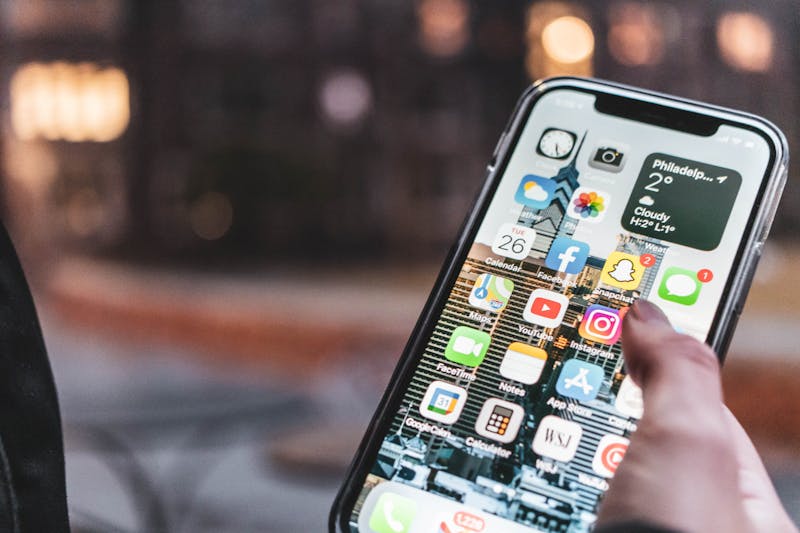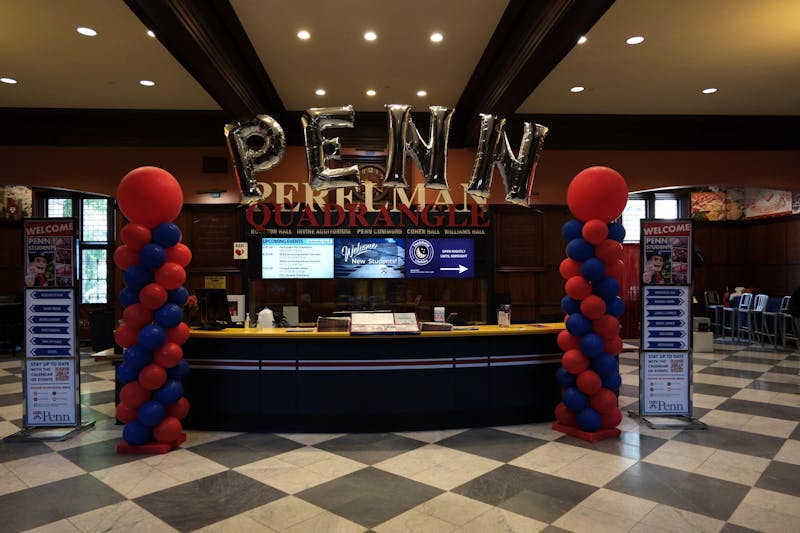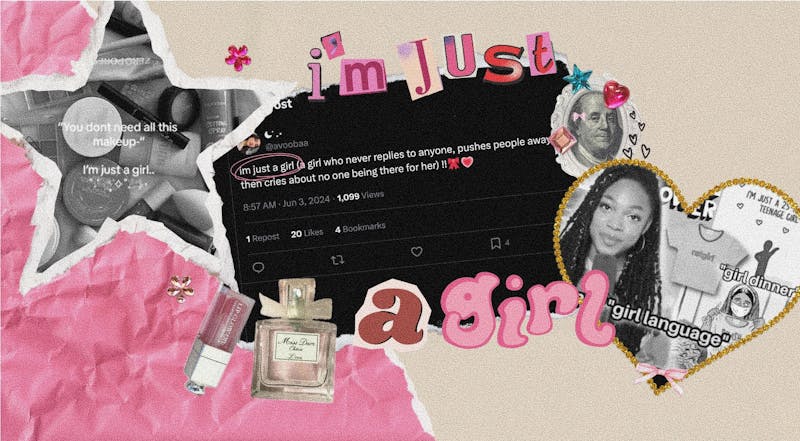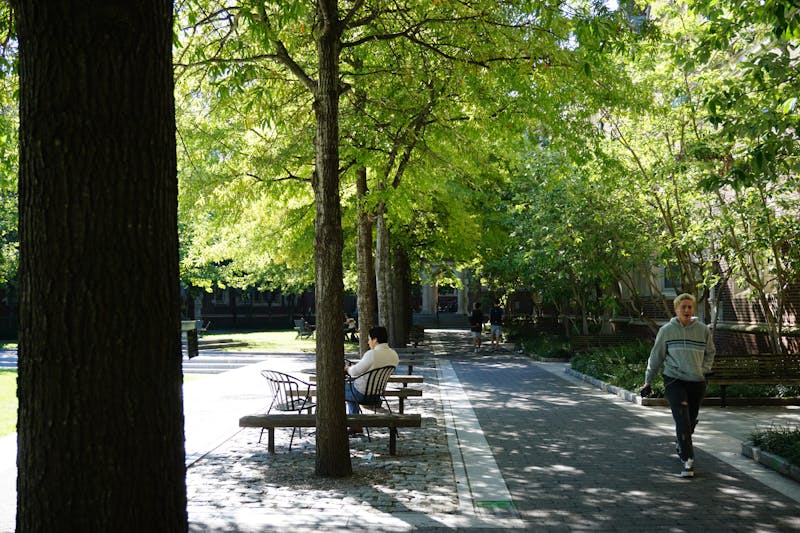
What color is the floor where you took your last class? Could you describe one painting in that building? Chances are you have no idea. Why would you? Life is busy, work needs to get done; you know the drill. So you go through your life with an inattentive eye. Each day you are less mentally present, chaotically rushing everywhere. Little by little, you see less and less until … well, you become blind. You turn blind to your surroundings, but even worse, you become blind to others around you. It is time to open your eyes.
Of course, we are distracted and isolated, and we already learned that those two facts are related from journalists like Maggie Jackson and physicians like United States Surgeon General Vivek Murthy, who make pertinent laundry lists of urgent problems. Yet in our little Penn microcosm, I suspect part of our poor mental health reputation stems from an inability to truly see one another and the world around us. Everybody is looking, but who is seeing? Let me explain.
This summer, I stood in front of the "Mona Lisa" (which France stole from my country, Italy), and as masses were shoving each other to get to the front, I wondered: Are we all seeing the "Mona Lisa"? How do we know we are truly seeing and not just looking, taking a picture, and leaving? What does it mean to fully see something, and what do we miss by looking without contemplating?
When I returned to campus after the summer, I started thinking about truly experiencing and seeing a space. For example, I discovered a new Penn sign prohibiting protests right between Locust Walk and College Green, despite walking there for days without noticing it. And then I realized the problem was worse than blindness to spaces.
I noticed a building had the same security guard as last year, and her answer to how she had been since summer gave me shivers: “Thank you for acknowledging my existence.” How neglected must you feel as a human to thank me for acknowledging that you exist? Our attitude to Penn staff is the perfect example of our collective blindness.
Acknowledging the work of the person cleaning bathrooms in Huntsman Hall or serving you a cheeseburger at Class of 1920 Commons goes beyond privileged pity (after all, you are paying to study here). Rather, it is about finding and seeing humanity in your day-to-day life. Because the truth is: We do see, but with an agenda. We see what we choose to see, and by choosing to be neutral, we choose what we do not see.
I do not want to be fatalistic and generalize. Most Penn students care deeply about each other. Yet we always choose to ignore something. How many people have you ignored out of your life today? Was it the sleepy person having a rough day next to you in class or the person begging for your money on Walnut Street?
Of course, sometimes our reasons are valid. We cannot change the world, but we cannot turn to the side either. Not only do we not pay attention, but we also never reassess and redirect our attention to consider what we may be missing.
I keep thinking about that guard who felt unseen, and I wonder: How much in this world is indeed unseen? How much are we missing? How much is there for us to discover? And is unveiling that beauty maybe not the beauty of life itself?
Yet these rather obvious questions do not tell us much about what we can do. Like, OK, open your eyes and what? My stories are anecdotal, but I hope they evoke questions in you. When you are in a club meeting, ask yourself if you can say you are truly there if you are so distracted thinking about the next thing you need to do. On the flip side, at the bar, ask yourself whether you are really experiencing time with friends if all you do is pick up your phone and take pictures (your brain turns off to stimuli when you take them, making you experience less and remember less).
Dare I say it, stop pretending you do not know someone on Locust Walk by turning your head to avoid seeing them. Waving has never killed anyone. Of course, I am unimportant, so you can ignore me. The pebble in my shoe is that I am profoundly scared and terrified that tomorrow, you will become a “blind” doctor, a “blind” lawyer, a “blind” engineer, a “blind” nurse, and a “blind” policymaker. Penn will teach you critical thinking or any generic employable skill, but it will not teach you to care, to wonder, to see.
We all go through life believing we are unique. That is fair. We are the protagonists of our lives. Except lives intertwine, and the only way to meet one another is to let one another precisely into our lives.
Was it not philosopher Emmanuel Levinas who said that paying attention to others is the real driver of change? By allowing another person to replace you and be transformed by them, you celebrate that they do not remind you of yourself. Well, if you cannot even see others, how can you be changed by them?
Whether you are a busy engineering student working on problem sets or our typical preprofessional Wharton-ite, some presences shine in your life that you simply cannot allow to go unnoticed. Especially if you feel lost, start from there: Start by seeing others. Pay attention to them. Start from others and return to yourself.
As José Saramago best put it in his famous novel “Blindness,” “I think we are blind, Blind but seeing, Blind people who can see, but do not see.”
Truly seeing is liberating. It means to live a deliberate life, to view reality as it is with no agenda and detached from meaning. What happens is you slowly start noticing the unnoticeable and the existential despair of what you may be missing in life, and it slowly goes away, permanently.
I dream of a world in which we all see each other and are not blind to our surroundings. It is idealistic, I know, but before you argue with me, first notice what color the floor is: You might have missed that.
FRANCESCO SALAMONE is a Wharton junior studying decision processes from Palermo, Italy. His email address is frasala@wharton.upenn.edu
The Daily Pennsylvanian is an independent, student-run newspaper. Please consider making a donation to support the coverage that shapes the University. Your generosity ensures a future of strong journalism at Penn.
Donate







